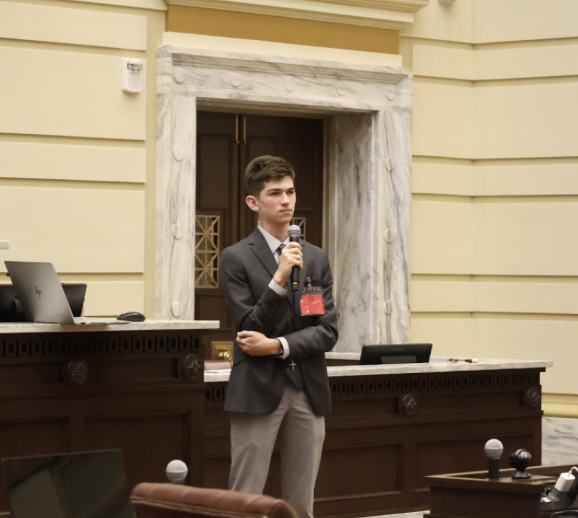By Journalist by Alexandria Willard (OSU)
Bill No. OBU-002, The “Free the Nipple” Act of 2023, authored by A. Gardner (OBU), proposes to redefine laws regarding public nudity and gender-based discrimination in Oklahoma. When the author was asked what gave him the inspiration to tackle this issue, he responded simply with, “It came to me in a dream.”

Presented on Friday evening in the senate, the bill is creating a new law that aims to eliminate the distinction between male and female breasts in public exposure laws, asserting that such laws perpetuate inequality.
The Act would also grant individuals the right to be topless in public areas where they are otherwise authorized to be and allows private establishments to enforce dress codes equally for men and women, without hindering breastfeeding mothers. Additionally, the bill proposes an amendment to the definition of “state of nudity” in existing statutes.
One senator raised the question of if this would allow female dancers to be able to dance without pasties, and Gardner responded explaining that this would “amends the Adult Cabaret Law,” also known as 21 O.S. §1040.55.
21 O.S. §1040.55 in Oklahoma law, pertains to definitions related to indecent exposure and obscenity. This section defines certain terms within the context of offenses concerning nudity and exposure. Specifically, §1040.55 defines the term “state of nudity,” which is crucial in determining what constitutes indecent exposure under Oklahoma law. The definition includes: The showing of the human male or female genitals or pubic area with less than a fully opaque covering, as well as the showing of the female breast with less than a fully opaque covering or any part of the nipple.
This definition sets the boundaries for what is considered nudity or exposure under the law in Oklahoma. It is important in legal matters concerning indecent exposure, public decency, and regulations related to attire or exposure in public places.
It’s important to note that legal statutes might have undergone changes or updates since then, so for the most current and accurate information regarding this specific law in Oklahoma, it’s advisable to refer to the most recent version of the Oklahoma statutes or consult with a legal professional well-versed in Oklahoma law.
Friday evening, the bill passed through the senate with a vote of 11 ‘Yes’, 4 ‘No’, and 7 ‘Obstention’s. Clearly, some senators were unsure how to feel about the sensitive topic. However, if the bill is passed through the House, it will be scheduled to become effective ninety (90) days after its passage and approval.
